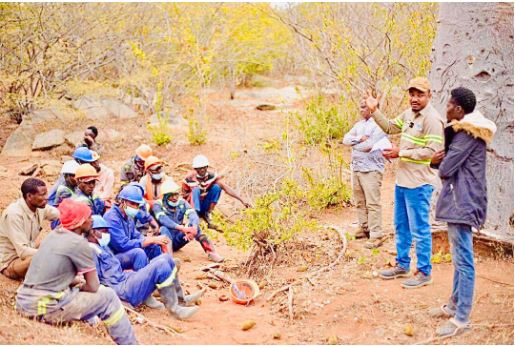Dodoma: Small-scale miners from copper mines in Dodoma have been given special training on workplace safety, health, environmental protection and management of mining activities. The training is part of efforts to strengthen safe and sustainable mining in the country.
The training involved miners from the Shengde Mine in Nala, the Hussein Pilly Mine in Tambi (Mpwapwa District) and the Canada Mine in Chamkoroma (Kongwa District) where it was facilitated by the United Nations Development Programme (UNDP) in collaboration with the Minerals Commission.
Speaking at the opening of the training, Engineer Chacha Megewa from the Minerals Commission said it is important for miners to work in a safe environment by using protective equipment such as hard hats, reflectors, boots, gloves and masks.
“Dynamite blasting is one of the most dangerous activities in mines. This is a professional job and must be done by a person with a special certificate. It is important to ensure that all explosives have fully detonated before allowing people to enter the mine again,” said Engineer Megewa.
Mine Inspector from the Mining Commission, Fahad Muku, reminded that safety is a collective responsibility and not the responsibility of one person.
He said miners should build a culture of protecting their health and respecting the rules of work in mines.
“The mine environment is dangerous. Not wearing protective equipment is risking your life. It is our responsibility to protect our health and preserve the environment,” said Mr. Fahad
He said measures to rehabilitate the environment after mining, including covering holes and planting trees, are important for the safety of the community, especially children and livestock.
During the discussion, some miners expressed their satisfaction with the training and requested assistance with protective equipment to help protect reproductive health and reduce HIV transmission in mining areas.
This training is part of UNDP’s strategy to strengthen the contribution of the Mining Sector in the country by ensuring that mining activities are safe, productive and that take health and environmental issues into account.
According to the organizers, similar training will continue to be provided in other regions to help enable small-scale miners to comply with national and international standards for good and safe mining.




